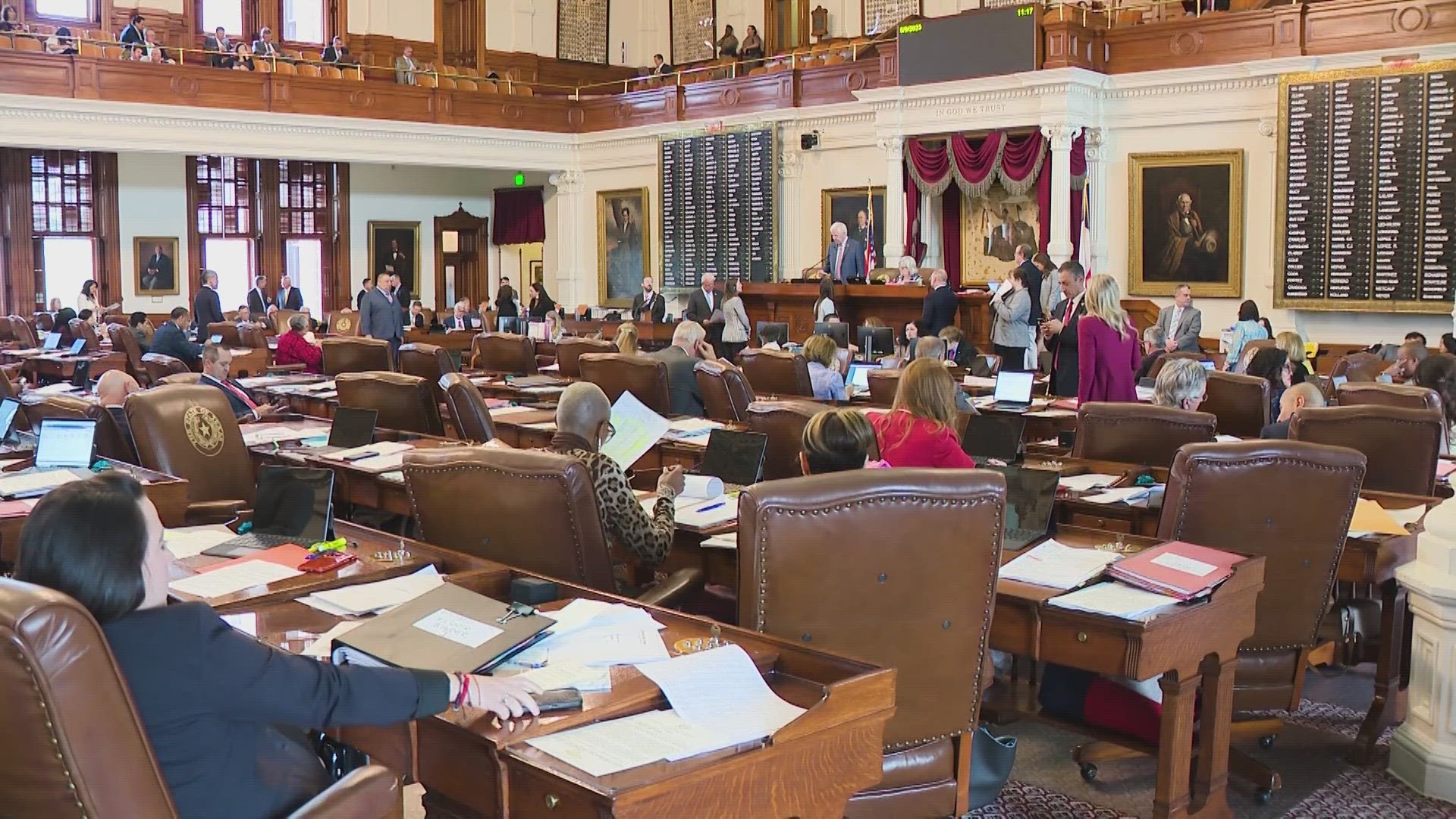TEXAS, USA — The suspect in the mass shooting at Allen Premium Outlets did not hide his hate.
According to an FBI bulletin written after the shooting, 33-year-old Mauricio Garcia had posted violent, white supremacist rhetoric and images hundreds of times on his social media accounts.
He had neo-Nazi ideation, according to the Texas Department of Public Safety, and showed it through tattoos on his body and patches on his clothes.
Yet, he was not known to law enforcement.
At least not until he shot and killed eight people and injured seven more on a busy Saturday afternoon at the Allen mall State Rep. Mihaela Plesa frequents.
Some of her friends were there when the shooting happened.
“It’s not just that my thoughts and prayers are with [the victims], I wake up and I want to fight for them,” said Plesa, a Democrat whose district includes part of Allen.
Part of the fight is for accountability for her three constituents who died.
“We could have prevented this,” she said.
Plesa and other Texas Democrats have been pushing to strengthen Texas gun laws since the session began in January.
And after the shooting in Allen, there was slight momentum for a day or two with a handful of Republicans beginning to voice their support for change.
But measures now appear stalled, and it seems unlikely that any talk of gun reform will see further action or debate.
Democrats are disappointed, but say there’s other work to do.
“I think there’s been a growing wave of white supremacy in this country - from a grocery store shooting to a church to El Paso to now Allen. We’ve watched this happen not even in slow motion. This is happening rapidly. And our leaders refuse to do anything about it,” said State. Rep. Gene Wu, a Democrat from Houston.
In August 2019, a man from Allen drove to El Paso to specifically target people of Mexican descent.
Moments before he shot and killed 23 people at a Walmart, he posted a racist manifesto online.
Days after the mass murder, Texas Governor Greg Abbott formed a Domestic Terrorism Task Force. Part of the group’s goal was to strategize ways to better track threats of extremism.
Through an open records request, WFAA asked the governor’s office for minutes from all task force meetings.
Documents returned show the group met twice – August 30, 2019 and January 7, 2020.
Then COVID hit and the task force did not reconvene, the governor’s office confirmed.
“I want to know what DPS has been doing, what threads they’ve been following on Twitter or Facebook or any kind of social media from people like this man in Allen,” said State Sen. Roland Gutierrez, a Democrat from San Antonio.
Wednesday, May 10, Gov. Abbott’s press office sent WFAA a statement saying since the mass shooting in El Paso and the one that followed in Midland Odessa weeks later, the governor has issued eight executive orders and five directives to DPS.
The statement went on to say since the directives were put in place, more than 110 special agents have been assigned to Texas Anti-Gang Centers investigating criminal gangs affiliated with neo Nazi and white nationalist groups.
“DPS has 200 Special Agents and 14 Intelligence Analysts to monitor and investigate all threats to life, including domestic terrorism threats, domestic terrorism subjects, and domestic terrorism organizations. But there is more work to be done,” said Andrew Mahaleris, spokesperson for Gov. Abbott.
The concerns are bipartisan.
State Rep. Frederick Frazier, a Republican from Collin County, is a career police officer.
“Why are we not looking? Why are we not watching? Why are we not looking at social media. What is going on with this particular person? Why is there so much hate?” he asked.
He praised work done by fusion centers, which are places where state, local and federal law enforcement agencies work together and share intelligence.
But Frazier said lawmakers need to look to increase funding for the kind of difficult investigative work it takes to track online extremism.
“Some of these guys are just so quiet, so under the radar, it’s a suicide mission,” he said.
Plesa represents a diverse district and she said too many of her constituents are living in fear of being targets of hate.
“If we don’t deal with extremism, we’re going to keep seeing these things happen,” said Plesa.

